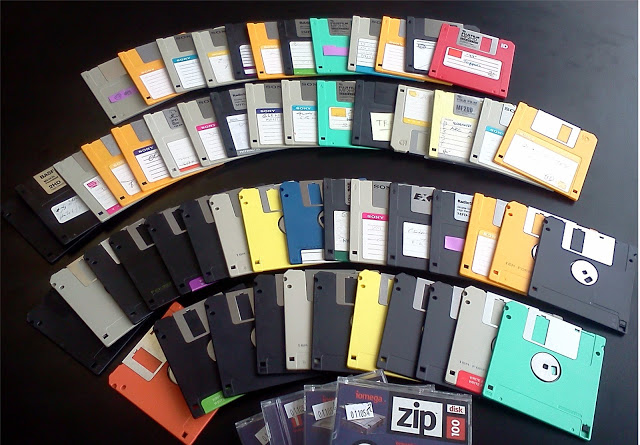Recovering Old Files: Challenge or Lesson to Study?
Informational technology is developing so fast that data we stored only a few years ago is often stuck on old disks with very few drives that are able to read them. Computer forensics experts can uncover old files, sometimes solving crimes along the way.

When new files relating to the South Yorkshire Police’s handling of the Hillsborough disaster emerged, plenty took the form of dog-eared notebooks and water-damaged folders. But in amongst the evidence handed over to the Independent Police Complaints Commission, there were also 167 floppy disks – containing hundreds of documents that were potentially critical to the investigation.
Paper is a reasonably useful medium; if it gets a bit damp or dirty you can still read the marks that have been made on it. But the same can’t be said for magnetic storage. The exhibits manager for the inquiry, David Wolstencroft, and his team had to purchase an ageing computer in order to read the 5.25-inch floppies – disks much bigger than the 3.5-inch ones most of us remember using on our PCs before they died out, and a medium already well on the way to obsolescence at the time of the 1989 disaster. “We got them all read,” he told the BBC when the analysis was just getting under way in 2013, “and they’ve come back on two small disks [DVDs] that aren’t even full. It’s unbelievable the way technology has changed.”


Our increasing reliance on technology and the related increase in the digital information we all generate has fuelled a massive rise in the number of firms offering digital forensics services. But when old cases are reopened and dusty technology resurfaces, experts face multiple challenges.
Floppy disks, from the 8-inch to the 5.25-inch to the 3.5-inch, become less willing to yield up their contents with every passing day. Even hard disks, which theoretically have some measure of protection from the atmosphere, still experience decay.
Data storage mediums have changed so many times during the last 50 years, that it seems like we are still looking for a perfect way to store the huge volumes of information we generate on a daily basis. And as years go by, the compatibility of data carriers and readers becomes a bigger and bigger problem. If only data archiving would be somehow standardized, then we would we most likely not face such challenges anymore?

Data storage experts agree that as of today, there is no better alternative for optical media in data archiving. Professional archival grade DVDs and CDs with gold and platinum layers are able to secure data for centuries, fact proven by a number of professional tests under severe environmental conditions.
Falcon Technologies International has a specially designed product line called Century Archival, that is a perfect solution for a long term data storage. It is not only a cost-efficient solution, but also a guarantee of secure and lasting data storage.

